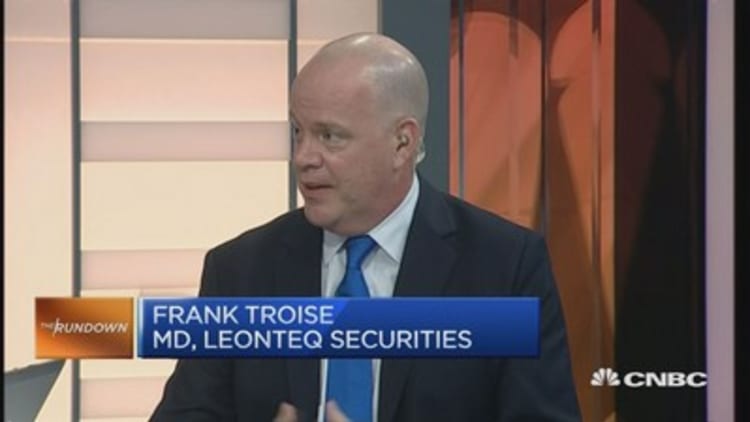George Osborne is planning to slash corporation tax to less than 15 per cent in an effort to woo business deterred from investing in a post-Brexit Britain as part of his new five-point plan to galvanize the economy.
While the chancellor did not backtrack on his warning that leaving the EU could push the country into recession, he told the Financial Times: "We must focus on the horizon and the journey ahead and make the most of the hand we've been dealt."
In his first interview since Britain voted for Brexit, Mr Osborne said he wanted a leading role in shaping Britain's new economic destiny, laying out plans to build a "super competitive economy" with low business taxes and a global focus.
Mr Osborne wants to set the lowest corporation tax rate of any major economy, announcing a target of less than 15 per cent, down from 20 per cent now. He said Britain should "get on with it" to prove to investors that the country was still "open for business".
Such a sharp cut in business taxes would take Britain close to the 12.5 corporation tax rate in Ireland and would anger EU finance ministers who fear a race to the bottom. The move could also alienate voters, given recent controversies over tax deals struck with multinationals such as Google.
The head of tax at the Organisation for Economic Co-operation and Development warned, in an internal memo cited by Reuters, that the fallout from Brexit "may push the UK to be even more aggressive in its tax offer" but that further steps in that direction "would really turn the U.K. into a tax haven type of economy".

Beside the tax cut, the chancellor said his five-point plan included focusing on a new push for investment from China; ensuring support for bank lending; redoubling efforts to invest in the Northern powerhouse; and maintaining the UK's fiscal credibilty.
Before the referendum Mr Osborne had threatened to make £30 billion of tax rises or spending cuts in a post-Brexit emergency Budget; he is now striking a more cautious note, awaiting official forecasts before announcing any new measures in the Autumn Statement.
The chancellor accepted that Britain faced a "very challenging time" and urged the Bank of England to use its powers to avoid "a contraction of credit in the economy", reminiscent of the squeeze during the height of the financial crisis in 2008.
More from the Financial Times :
Osborne back on his feet after Brexit vote
Corbyn has 'bunker mentality' say rivals
Legal challenge over Brexit negotiations
The BoE will publish the results of its Financial Policy Committee meeting on Tuesday. It has many options available to maintain the flow of credit to companies and households even if many are reluctant to borrow in current circumstances.
The FPC could withdraw its commitment to increase the buffers that banks have to hold in good times and even set up a new Funding for Lending Scheme in conjunction with the Treasury.
The chancellor said Britain would aggressively seek new bilateral trade deals and that he would lead an extended visit to China this year, in an attempt to keep inward investment flowing.

In spite of the expected shock to the public finances, he also called for the next prime minister to continue investing in the HS2 rail project from London to the north and trans-Pennine rail improvements and approve a new third runway for the south-east.
He said he was "not backing anyone at the moment" in the Conservative leadership contest, although his friends say he would like to continue at the Treasury or move to the Foreign Office if offered the chance.
Some of his allies have already thrown their weight behind Theresa May, home secretary, ahead of the first ballot on Tuesday, but Andrea Leadsom, the pro-Brexit former Treasury minister, is also winning favor with some Tory MPs.
On the public finances Mr Osborne promised to "maintain the consolidation that we put in place last year" and said a review of the structural damage caused by Brexit would be conducted in the autumn.
Last week the chancellor dropped his target of a 2020 budget surplus, as the Treasury focus shifted away from austerity to policies to stop the shock of Brexit turning into a severe recession.
Mr Osborne said whoever became prime minister should seek maximum access to the EU single market for Britain's goods, services and financial services, but conceded that could be curtailed by the fact that voters in last month's referendum also want restrictions on EU migration.

